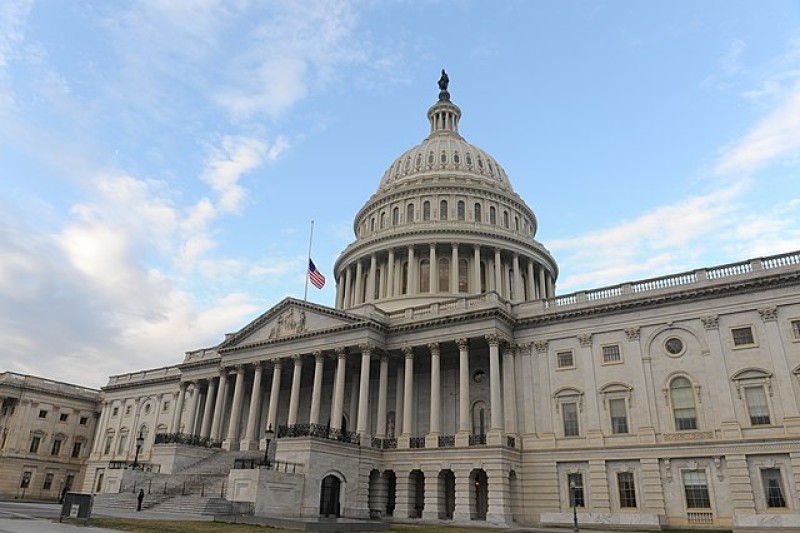Introduced last October as a bipartisan bill, the Establishing New Authorities for Businesses Laundering and Enabling Risks to Security (ENABLERS) Act is intended to close existing loopholes used by criminals worldwide to launder their ill-gotten gains in the U.S..
The bill has since been backed by House of Representatives members on both sides of the aisle; former U.S. secretary of state Mike Pompeo; and National Security Advisor Jake Sullivan, who endorsed it on behalf of the Biden administration.
More than 20 national security and foreign policy experts sent a letter to leaders of both houses of Congress urging passage of the act. The bill, they say, is a means to fight back against international drug traffickers, kleptocrats, and foreign state actors who illegally exploit the U.S. financial system for their own benefit.
Nate Sibley of the Hudson Institute think tank told OCCRP that tax havens play a big role in almost every major money laundering scheme. “What [the havens] have in common is minimal regulation, strong privacy safeguards, and minimal international law enforcement cooperation that are designed to attract foreign corporations and wealthy tax avoiders,” he said.
American lawmakers drafted the bill following the release of the Pandora Papers, which exposed how dictators, criminals, and the corrupt launder their money through various economic sectors that are not required to perform the same due diligence expected of the banking industry.
For instance, if one were to wire a significant amount of money to the U.S. from the Cayman Islands, American banks will file a suspicious activity report. The transaction will subsequently be flagged to ensure that neither the originating or the receiving accounts are linked to any criminal activity.
To get around this hurdle, money launderers resort to real estate transactions, private equity investments, art dealers, and other ‘enablers’ that do not receive the same degree of scrutiny from U.S. financial authorities.
Experts say fighting this type of crime isn’t easy, because any industry that performs financial transactions for its clients can be abused by money launderers. “Really anything can be the destination of laundered money,” Geoffrey Cain, author and Senior Fellow at the Lincoln Network, told OCCRP.
“We just need to have the same system for banks and other financial institutions apply to these gatekeepers,” said Scott Greytak, Advocacy Director for Transparency International US, at the 2022 International Anti-Corruption Conference.
Since Russia’s invasion of Ukraine in February, the bill has drawn considerable attention to Russian oligarchs and the sanctions levied against them, which have drained billions out of their coffers.
One example is a case in June this year when the U.S. Treasury blocked a billion dollar trust, in which sanctioned Russian oligarch Suleiman Abusaidovich Kerimov held a property interest. But that revelation, Greytak said, revealed that it was a U.S.-based enabler that set up that trust in the first place.
Ultimately, there are still ways for criminals and the corrupt to exploit holes in the system and launder their dirty money into the U.S., experts say.
“Lawyers are the handmaidens of transnational kleptocracy,” Sibley told OCCRP. “They can resist law enforcement inquiries by claiming attorney-client privilege,” whereas U.S. financial institutions cannot.
In October this year, the president of the American Bar Association (ABA) urged senators to oppose the ENABLERS Act. She argued it would label lawyers as ‘financial institutions’ under the Bank Secrecy Act and subject them to the same standards in submitting suspicious activity reports when providing financial-related legal services to clients.
However, Greytak is concerned that “if you create a carve-out for ‘attorneys only’ from these obligations, you are giving corrupt actors a clear roadmap for how to better hide and move their money.”
He went on to say that ABA members who oppose the bill “are attempting to manipulate and hyperbolize concerns over attorney-client privilege, in order to make a case that is really about blocking the ability of an extremely tiny—yet vocal and profit-minded—group of attorneys in the United States who wish to keep profiting by being able to do business with criminals.”
Still, the ENABLERS Act is not designed as a silver bullet to end money laundering, but rather as a tool to better detect it. One major problem the bill addresses, Cain told OCCRP, is that the U.S. does not possess adequate financial intelligence on its enemies.
When money laundering is discovered, he said, it is often linked to a prior criminal act, but a lot of these revelations about their finances don’t come through law enforcement alone. This means that even if the culprits are apprehended, their money can remain undetected.
What ENABLERS will do is “provide US law enforcement with critical new sources of information to assist their investigations,” Sibley told OCCRP. “And it will help change the working culture in certain sectors and professions that have become comfortable with turning a blind eye to dubious clients.”
Although the bill passed the House in July, it ran into a roadblock Wednesday in the Senate, which ultimately voted not to include it in the 2023 defense budget.
However, there is one more legislative option available before the current congressional session ends, Erica Hanichak, government affairs director for the FACT Coalition, told OCCRP: the 2023 fiscal year omnibus bill to fund the government.
“If the Administration is serious about its endorsement of the ENABLERS Act,” Hanichak said, “it will work with congressional leaders to pass this bill before the end of the year and patch this leak that’s allowed dirty money to leach into the U.S. financial system.”
Otherwise, the bill will have to be resubmitted when the newly elected 118th United States Congress convenes in January, and Republicans gain a slight majority in the House.
But some experts believe now is the time to pass ENABLERS.
“We’re letting these folks park their dirty money right under our noses,” Greytak said. “We need to rally together and make sure that we get this done this year so that the United States can no longer have the shame and the albatross of being known facilitators to all of these scandals in different parts of the world.”



